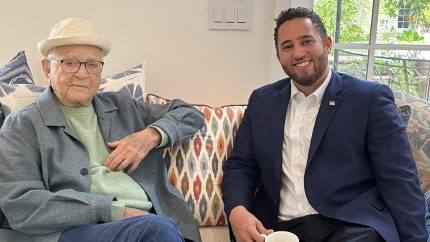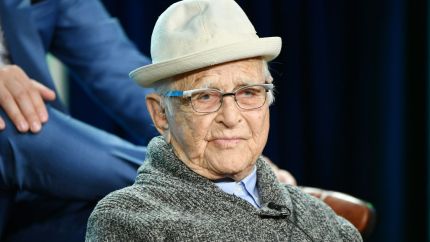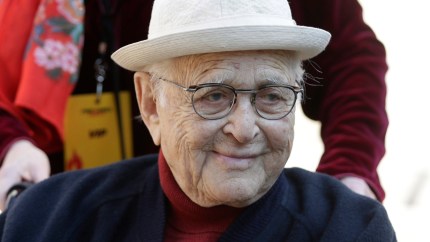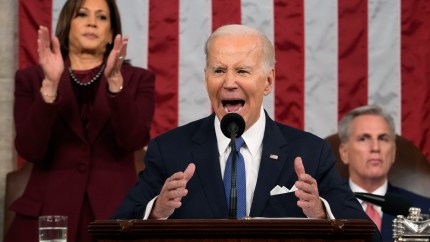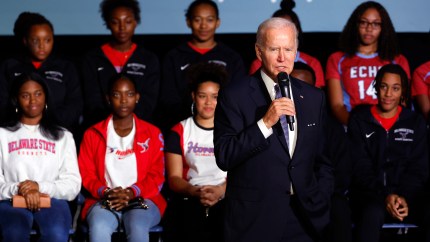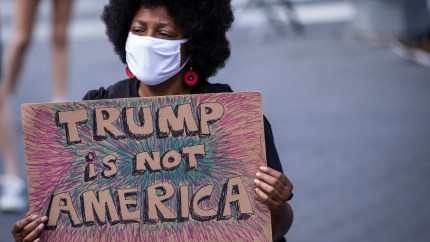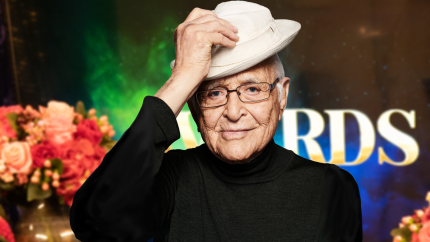Group founded by Norman Lear keeps his legacy of political activism alive
“Even though [Lear] found enormous success...he founded our organization, People For the American Way, to create a home for people really of all stripes,” says Svante Myrick.
While celebrated television writer and producer Norman Lear is best known for his hit TV shows and films, many might not know about his decades-long political activism that extended beyond Hollywood.
In 1980, Lear founded People For the American Way, a progressive advocacy group he created to combat the rise of a Christian right-wing that was dominating American politics.
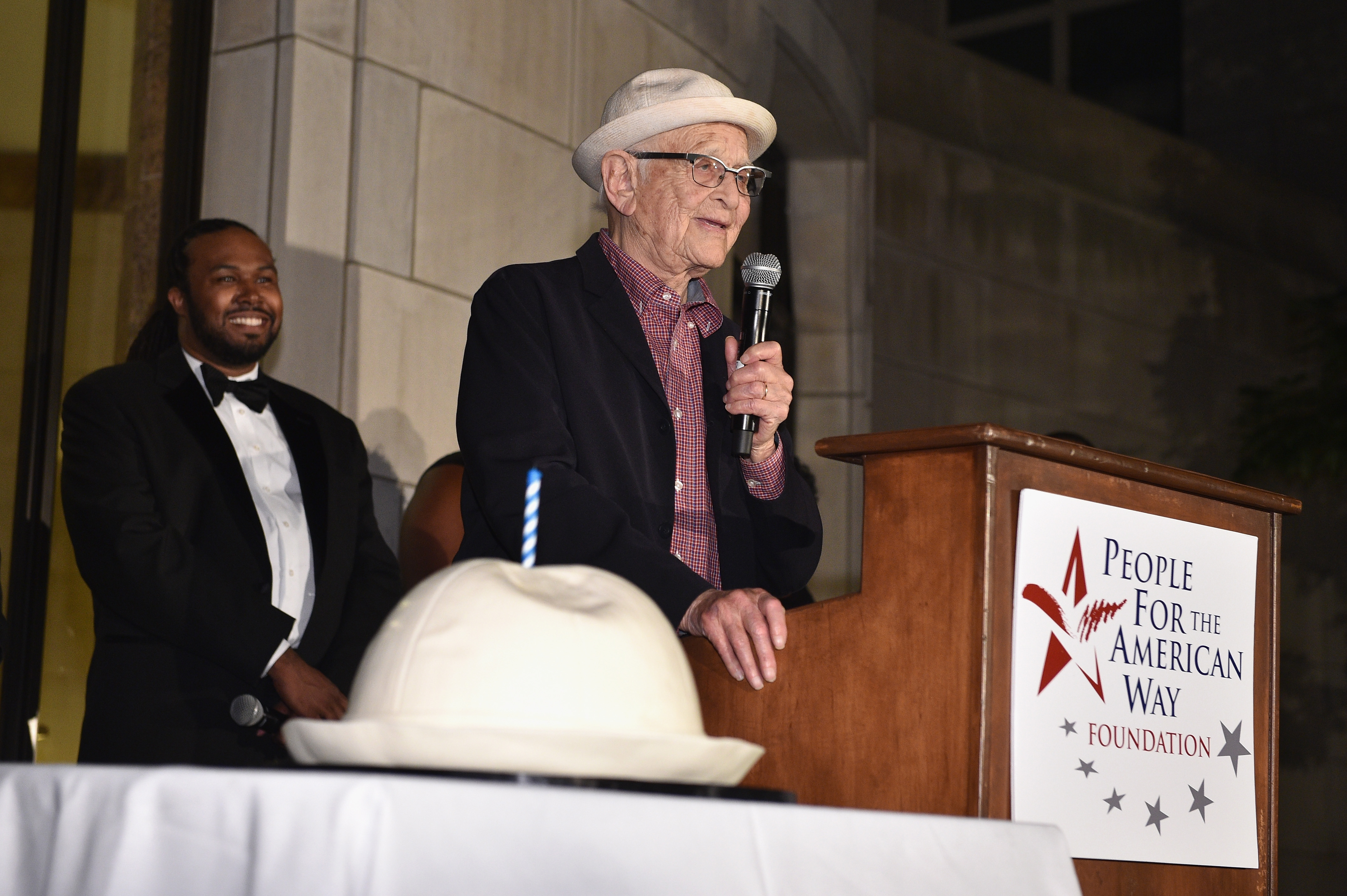
After serving in World War II and flying more than 50 bomb missions over Nazi Germany, including some in which he was escorted by the all-Black Tuskegee Airmen, Lear returned to the United States.
He quickly became “disappointed and disheartened” when he found “conservative voices saying that the Jewish people…[and] progressives were not true Americans [and] were not patriots,” recalled Svante Myrick, a friend of Lear and president of the organization he founded more than 40 years ago.
Myrick noted that when Lear created People For the American Way, which is based in Washington, D.C., then-presidential candidate Ronald Reagan was rising to dominance, and the United Kingdom’s Margaret Thatcher had only recently become the country’s first female prime minister.
“This Christian right-wing nationalism was beginning to dominate our politics,” Myrick told theGrio.
“Even though [Lear] found enormous success through ‘All in the Family’ and ‘The Jeffersons’ and ‘Sanford and Son’… he founded our organization, People For the American Way, to create a home for people really of all stripes,” he explained.
Lear’s mission was to create a political engine to fight against the idea that one’s political beliefs defined whether or not one was a patriot.
“He wanted to make a home for the freedom of speech, to protect the rights of those who are different, to protect the rights of those who are minorities,” said Myrick.
Forty-three years later, PFAW has been on the frontlines of the country’s biggest political battles, including most recently, the fight for voting rights and reproductive justice after the Supreme Court overturned Roe v. Wade, ending nearly 50 years of federally protected abortion access.
“After decades of progress, we’re actually seeing a dangerous resurgence,” Myrick said of Christian far-right political figures and ideologies that are shaping policies across the country.

Though he doesn’t believe Donald Trump “holds personal religious views,” he said the former president and current Republican presidential candidate “certainly benefits from the support of the right-wing Christian white nationalists.”
The rise of U.S. Rep. Mike Johnson, R-La., the new speaker of the House of Representatives, is particularly of concern, said Myrick.
Johnson, who described himself as a new “Moses” called by God to lead the nation through a “Red Sea moment,” has been called out by Democratic critics who point out that the new conservative speaker wants to criminalize abortion, cut funding to social programs such as Social Security and Medicare, and roll back rights for members of the LGBTQ+ community.
“This is a dangerous time, and if we’re not on alert, they will roll back the rights of all people for whom they disagree,” warned Myrick.
“They will bring us not only back to pre-1960, but back…to the Middle Ages, in which landowners and the wealthy control all decisions in the country,” he continued, “and the rest of us will not only be kept in the dark but kept in serfdom, poverty, and women especially are kept and used as possessions and not as full humans.”
The political stakes, particularly ahead of the 2024 election, is why People For the American Way is convinced that Lear’s intention with the organization in 1980 is more relevant and necessary today. The group created a fund in his name, the Norman Lear Legacy Fund, which will be used to address three critical issue areas he cared most about: freedom, justice, and democracy.
“He thought if we could live in a country with free expression, then we can make this nation a better place for all of us,” said Myrick, adding, “Norman [also] understood the role of the judiciary in our lives, from legalizing or making illegal de facto segregation to, of course, upholding abortion rights or then taking those rights away.”
“People For the American Way is going to continue to fight for a fair judiciary and a better Supreme Court in particular,” he added. And most importantly, said Myrick, Lear wanted to “make sure people had access to the right to vote.”
“So we’re going to do those things,” he vowed.
Reflecting on his personal relationship with Lear, Myrick recalled when the Hollywood giant asked him to become the new president of People For the American Way. At the time, Myrick was mayor of Ithaca, New York.

“He [was] 67 years older than me, and he asked a young-ish Black mayor to come and lead his organization,” he said.
Myrick continued: “We had very little in common except a shared belief that America should belong to all of us. And that sort of selflessness, that sort of dedication to other people, and a belief in the power of teamwork is why so many of us love Norman Lear.
The 36-year-old civil rights leader also shared that in addition to Lear’s political activism in Washington, his Hollywood career also served as its own activism that broke down racial barriers. In fact, Myrick said, he would not be alive today if it were not for Lear’s “depictions of Black American life being beamed into tens of millions of American homes.”
“The humanizing effect of those stories did more to advance, I believe, the cause of race relations than [his shows] will ever get credit for,” said Myrick. “He knew that our politics lives downstream of our culture.”
He added, “If we can change the cultural conversation, you can change the political outcomes.”
Myrick recalled when his white mother brought his father, a Black man, to her community in upstate New York, where there were “zero Black people living there.”
“The very fact that there was a broader familiarity, I think, knocked down all those anti-miscegenation laws that still existed when Norman was doing this work,” he argued, “and helped pave the way for much more love and acceptance in this world.”
Never miss a beat: Get our daily stories straight to your inbox with theGrio’s newsletter.
